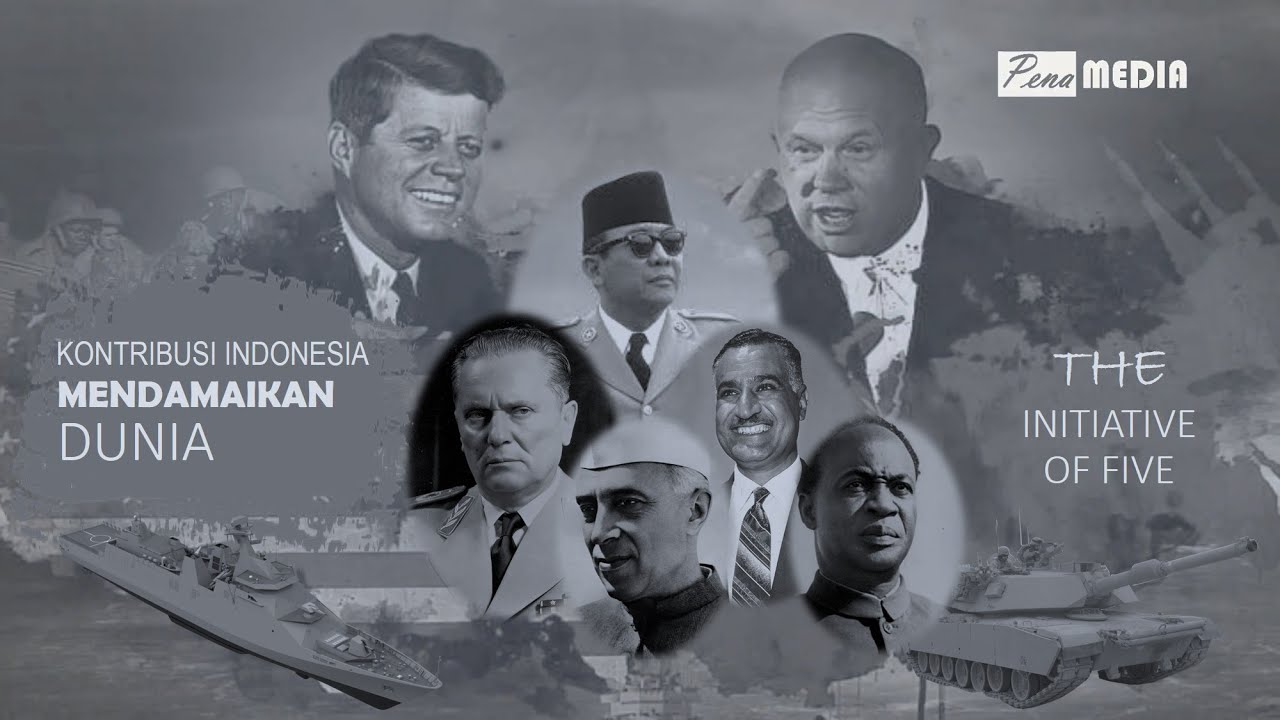APRENDA SOBRE A CONFERÊNCIA DE BANDUNG DE UMA VEZ POR TODAS - SOS História {Prof.Pedro Riccioppo}
Summary
TLDRIn this video, the presenter dives into the Bandung Conference of 1955, held in the context of the Cold War. This gathering of 29 countries, mainly from Africa and Asia, aimed to promote an independent foreign policy, free from interference by the United States and the Soviet Union. The conference also condemned colonialism, neocolonialism, and racism, while advocating for sovereignty and cooperation among nations. The video explores how these countries sought to establish autonomy and work together for peace and development, setting the stage for a global movement toward decolonization and self-determination.
Takeaways
- 😀 The Bandung Conference took place from April 18 to April 24, 1955, in Indonesia, during the Cold War.
- 😀 29 countries participated in the conference: 23 from Africa and 6 from Asia, aiming for independence and cooperation.
- 😀 The conference aimed to prevent interference from both the United States and the Soviet Union in the affairs of African and Asian countries.
- 😀 The primary goal was to promote a foreign policy independent of the two Cold War superpowers, the U.S. and the Soviet Union.
- 😀 The term 'Third World' was coined during the conference to describe nations not aligned with the capitalist or socialist blocs.
- 😀 Many of the countries at the conference were in the process of decolonization or had recently gained independence from European powers.
- 😀 The conference condemned colonialism, neocolonialism, and racism, which were prevalent in both Europe and the U.S. during this period.
- 😀 Delegates at the conference also opposed the use of atomic weapons and nuclear testing, seeking peaceful resolutions.
- 😀 The conference established a spirit of cooperation among the participating countries, fostering unity for shared goals of sovereignty and independence.
- 😀 Ten key principles were established at the conference, including respect for national sovereignty, non-aggression, and mutual support for independence.
Q & A
What was the purpose of the Bandung Conference in 1955?
-The Bandung Conference aimed to bring together 29 African and Asian countries to discuss their political independence and to establish a foreign policy that was independent of both the United States and the Soviet Union during the Cold War.
What historical context surrounded the Bandung Conference?
-The Bandung Conference took place during the Cold War, specifically after the Korean War and the establishment of peaceful coexistence between the United States and the Soviet Union. This was a time when African and Asian nations were undergoing decolonization and seeking to assert their sovereignty.
Which countries sponsored the Bandung Conference?
-India, Pakistan, Burma (now Myanmar), and Sri Lanka were the primary sponsors of the Bandung Conference.
What was the concept of 'non-interference' in the Bandung Conference?
-The concept of non-interference at the Bandung Conference was aimed at preventing the involvement of both the United States and the Soviet Union in the internal affairs of African and Asian countries, especially during the Cold War, to preserve their political independence.
How did the Bandung Conference define the term 'Third World'?
-At the time of the Bandung Conference, the term 'Third World' referred to countries that were not aligned with either the capitalist Western bloc (First World) or the socialist Eastern bloc (Second World). These included many African, Asian, and Latin American nations seeking independence from colonial powers.
What major issues did the countries at the Bandung Conference address?
-The main issues discussed at the Bandung Conference included opposition to colonialism and neocolonialism, racism, the use of nuclear weapons, and the desire for political and economic autonomy, free from interference by both the United States and the Soviet Union.
Why was racism condemned during the Bandung Conference?
-Racism was condemned during the Bandung Conference because it was widespread in European and American societies after the abolition of slavery. The conference aimed to fight racial discrimination and promote equality among nations.
What were the '10 points' mentioned in the transcript?
-The '10 points' referred to the main principles established at the Bandung Conference, which included non-interference in the internal affairs of other countries, opposition to colonialism, and the establishment of cooperation among the African and Asian countries to promote independence and sovereignty.
How did the Bandung Conference contribute to the independence of African and Asian countries?
-The Bandung Conference helped to solidify a sense of unity among African and Asian countries, fostering a cooperative approach to achieving independence, resisting external influence, and shaping a common foreign policy that would allow these nations to maintain their sovereignty.
What impact did the Bandung Conference have on the Cold War dynamics?
-The Bandung Conference highlighted the emergence of a bloc of nations that sought to remain neutral and independent from the Cold War superpowers, the United States and the Soviet Union. It emphasized the desire for a multipolar world, where these nations could pursue their own political and economic paths without interference from the two major Cold War powers.
Outlines

This section is available to paid users only. Please upgrade to access this part.
Upgrade NowMindmap

This section is available to paid users only. Please upgrade to access this part.
Upgrade NowKeywords

This section is available to paid users only. Please upgrade to access this part.
Upgrade NowHighlights

This section is available to paid users only. Please upgrade to access this part.
Upgrade NowTranscripts

This section is available to paid users only. Please upgrade to access this part.
Upgrade NowBrowse More Related Video

Merawat Momen Konferensi Asia-Afrika - SINGKAP

KAA - Sejarah Singkat Konfrensi Asia Afrika

Sejarah Konferensi ASIA-AFRIKA, Ide Lahirnya Sampai Munculnya Kesepakatan DASASILA BANDUNG

The History of Indonesian Diplomacy 1945-2010 (1/2) WITH ENGLISH SUBTITLE

Sejarah gerakan non blok

Sejarah konferensi asia afrika
5.0 / 5 (0 votes)